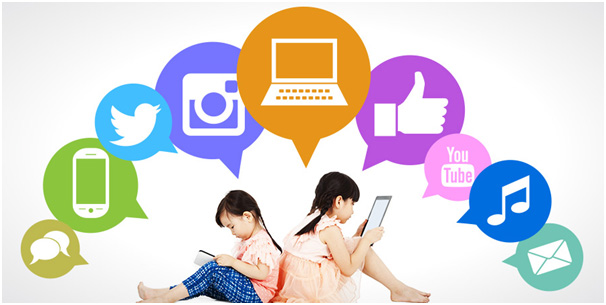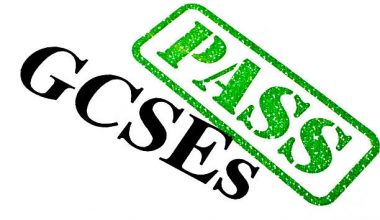How do we use social media wisely for students? Seeing that in our today life, social media has become an integral part of our living. For students, platforms like Facebook, Instagram, Twitter, and TikTok offer exciting opportunities to connect with peers, explore new ideas, and express themselves.
However, students must use social media wisely, ensuring that it doesn’t become a distraction or hinder their academic progress. In this article, we present ten practical tips on how students can navigate the world of social media with purpose and mindfulness.
By following these guidelines, students can harness the benefits of social media while maintaining a healthy balance between their online and offline lives.
Whether you’re a high school student preparing for exams, a college student juggling multiple responsibilities, or even an adult returning to education, these tips help you make the most of social media without compromising your educational pursuits.
Table of Contents
- How To Use Social Media Wisely For Students
- How can students balance social media usage and their academic pursuits?
- What are the potential risks of misusing social media as a student?
- Are there any specific social media platforms or features that are beneficial for students in terms of learning and growth?
- What steps can students take to protect their personal data and privacy on social media?
- How can Social Media help Students in their Studies
- Proper Use of Social Media for Youth
- Proper Use of Social Media for Students
- Frequently Asked Questions
- Conclusion
- References
- Recommendations
Social media is a fun and exciting way to connect with friends, share pictures, and explore new things. But as students, it’s essential to use social media wisely to ensure it doesn’t distract from our studies or cause any problems.
Below are ten tips to help you use social media wisely, especially if you are a student.
Set Time Limits
It’s easy to get carried away and spend hours scrolling through social media. Set specific times for using social media and stick to them. This way, we can focus on our studies and other important tasks.
Be Selective
Choose the social media platforms that are most useful and enjoyable for you. It’s better to have a few platforms you actively engage with rather than being overwhelmed by too many.
Protect Your Privacy
Check your social media privacy settings and ensure you’re comfortable with who can see your posts and personal information. Be cautious about sharing personal details that could harm your online reputation or compromise your safety.
Think Before Posting
Before sharing something on social media:
- Ask yourself if it’s something you’d be proud of in the future.
- Consider the potential consequences and how it may affect others.
- Remember, it’s challenging to take something back once something is out there.
Avoid Cyberbullying
Treat others online with kindness and respect. Don’t engage in cyberbullying or spread negativity. If you see someone being bullied, report it or offer support. Remember, our words have an impact, even in the digital world.
See also: 31 College Apartment Bedroom Ideas You Need to See
Cultivate a Positive Digital Presence
Use social media to showcase your talents, hobbies, and achievements positively. Share content that inspires and uplifts others. Building a positive digital presence can open doors to opportunities in the future.
Learn from Educational Content
Social media isn’t just for fun; it can also be a valuable learning tool. Follow educational accounts, join groups related to your interests, and engage in discussions that broaden your knowledge. Use social media as a source of inspiration and educational resources.
Avoid Multitasking
When studying or doing essential tasks, avoiding social media is best. Multitasking can reduce focus and productivity. Give your full attention to your work; once you’ve completed it, you can reward yourself with some social media time.
Be Mindful of Online Comparisons
Social media often presents an idealized version of people’s lives, leading to feelings of inadequacy or FOMO (Fear of Missing Out). Remember that what people choose to share is a highlight reel and is not a true reflection of their entire life. Focus on your journey and celebrate your achievements.
Take Breaks
Just like we need breaks from studying, we also need breaks from social media. Unplugging from social media can help us relax, recharge, and be present in the real world.
Read also: 25+ Cheap and Easy College Students Meals in 2024
Striking a balance between social media usage and academic pursuits is essential for students to stay focused and maximize their educational journey. Here are some tips to help achieve that balance:
Set Priorities
Identify your academic goals and priorities. Understand the importance of dedicating time and effort to your studies. Recognize that social media should not take precedence over your educational commitments.
Create a Schedule
Establish a schedule that includes dedicated study time and breaks. Allocate specific time slots for social media use, ensuring it doesn’t interfere with your study sessions. Stick to the schedule to maintain discipline and avoid excessive social media consumption.
Use Productivity Tools
Explore productivity tools or apps to help manage your time on social media. These tools can set time limits, block specific platforms during study hours, or provide reminders to stay focused on academic tasks.
Check out: Is University Counted as a Full Time Education?
Practice Self-Discipline
Develop self-discipline by resisting the urge to check social media notifications or indulge in mindless scrolling during study periods.
Train yourself to stay focused and motivated by rewarding yourself with social media time after completing essential tasks.
Create a Distraction-Free Environment
Minimize distractions by creating a study environment free from social media temptations. Put your phone on silent or in another room while studying, or use website-blocking extensions to restrict access to social media platforms.
Utilize Study Groups
Instead of relying solely on social media for casual interactions, consider joining or forming study groups with classmates. Engaging in face-to-face or virtual discussions can provide a more productive and focused environment for academic collaboration.
Practice Active Time Management
Prioritize your tasks and manage your time effectively. Break down your study sessions into manageable chunks, and use short breaks for social media as a reward. This way, you can balance academic work and social media interactions.
See also: What Are Financial Aid Refunds? How Does It Work?
Find Offline Hobbies and Activities
Engage in offline hobbies, sports, or other activities that interest you. This helps diversify your time and reduces the reliance on social media for entertainment. Exploring non-digital pursuits enhances personal growth and provides a healthy balance to your daily routine.
Choose the social media platforms that align with your interests and goals. Avoid excessive scaffold hopping or being overwhelmed by numerous accounts.
Selectively follow accounts and communities that provide value, inspiration, or educational content relevant to your studies.
Practice Mindfulness
Be mindful of your social media usage and its impact on your overall well-being. Regularly assess whether your time on social media aligns with your academic goals and contributes positively to your personal growth. Adjust your habits accordingly to maintain a healthy balance.
Read also: Hardest Degree In The Guinness Book Of World Records.
Misusing social media as a student can have some potential risks. Here are a few simple explanations of those risks, this also how to use social media effectively and responsibly:
- Distraction from Studies: Too much time on social media can distract students. It can make concentrating and focusing on essential tasks difficult, leading to lower academic performance.
- Time Wastage: Social media can be addictive, and students may spend excessive time scrolling through feeds and engaging in online activities. This can lead to wasted time that could have been better utilized for studying or other productive activities.
- Negative Impact on Mental Health: Constant exposure to social media can contribute to feelings of inadequacy, comparison, and anxiety. Students may experience pressure to present a perfect image online, leading to low self-esteem and negatively impacting their mental well-being.
- Cyberbullying and Online Harassment: Misusing social media platforms can expose students to cyberbullying and online harassment. Negative comments, trolling, or spreading rumors’ can lead to emotional distress, affecting their confidence and overall mental health.
- Damage to Online Reputation: Inappropriate or irresponsible behavior on social media can harm a student’s online reputation. Posting offensive content, bullying, or sharing private information can have long-lasting consequences, affecting future opportunities such as college admissions or job prospects.
- Privacy Concerns: Sharing personal information without considering privacy settings can expose students to risks such as identity theft, online scams, or stalking. It is crucial to be cautious about shared information and maintain control over who can access it.
- Academic Integrity Issues: Improper use of social media can contribute to academic integrity problems. Students may be tempted to cheat or plagiarize by seeking answers or copying content from online sources, compromising their intellectual integrity and learning process.
Yes, there are specific social media platforms and features that can be beneficial for students in terms of learning and growth. Some of them are:
Educational Websites
Some social media platforms, like YouTube and TED-Ed, offer educational channels and videos. Students can access tutorials, lectures, and informative content on various subjects, making it easier to understand challenging topics and expand their knowledge.
Online Learning Communities
Platforms like Reddit and Quora have communities where students can ask questions, engage in discussions, and seek advice from experts or knowledgeable individuals. These communities can provide valuable insights and support for academic or career-related inquiries.
Check out: 65 Heartwarming Graduation Gifts for Your Best Friend: Show Your Support
Professional Networking
LinkedIn is a social media platform designed for professional networking. Students can create profiles, connect with interested professionals, and explore internship or job opportunities. It’s a great platform to build connections and gain industry insights.
Collaboration Tools
Platforms like Google Drive, Dropbox, or Microsoft Teams offer collaboration features that enable students to work together on group projects or assignments.
They can share documents, exchange feedback, and collaborate in real time, fostering teamwork and enhancing productivity.
Online Course Platforms
Platforms like Coursera, Udemy, or Khan Academy provide access to online courses, including subjects not covered in regular academic curricula.
Students can explore their interests, acquire new skills, and supplement their formal education with additional learning resources.
Read also: 45 Graduation Gifts For Your Amazing Sister.
Educational Blogs and Influencers
Many educators and experts maintain educational blogs or social media accounts where they share valuable content and insights. By following these blogs or influencers, students can gain access to curated educational resources, tips, and industry trends.
To protect their personal data and privacy on social media, students can take the following simple steps:
- Check Privacy Settings: Review the privacy settings on social media platforms and ensure they are set to a level you are comfortable with. Limit the information visible to the public and control who can see your posts, profile, and personal details.
- Be Selective with Friend Requests: Only accept friend requests from people you know and trust. Avoid adding strangers or unfamiliar individuals to your social media networks, as they may have malicious intent.
- Use Strong Passwords: Create strong and unique passwords for your social media accounts. Avoid using common passwords or personal information that can be easily guessed. Regularly update your passwords to enhance security.
- Be Mindful of Sharing Personal Information: Avoid sharing sensitive personal information, such as your full address, phone number, or financial details, on social media platforms.
- Exercise Caution with Third-Party Apps: Be wary of granting permissions to third-party applications or games that request access to your social media accounts. Read and understand the permissions they require and consider the potential risks before giving access.
- Be Cautious of Phishing Attempts: Be vigilant about phishing attempts, which are fraudulent attempts to obtain your personal information. Avoid clicking on suspicious links or sharing login credentials through email or messages. Verify the authenticity of any requests before providing any personal information.
- Limit Personal Information in Bio or Profile: Be mindful of the personal information you include in your social media bio or profile. Avoid providing excessive details that can be misused or compromise your privacy.
- Use Two-Factor Authentication: Enable two-factor authentication (2FA) for your social media accounts whenever possible. This adds an extra layer of security by requiring a second verification step, such as a code sent to your phone, when logging in.
It aids in obtaining access to a wealth of educational materials.
Nowadays, a lot of people broadcast their lectures live on other websites, giving students access to a wide range of information.
It also improves their comprehension of the subject. To get their queries answered, they might even speak with subject matter experts.
Posting any images that you wouldn’t want your parents or instructors to see should be avoided. Do use caution when handling other people’s personal information. Never photo tag someone else without their consent. Don’t divulge their private information to the public.
- Your Standing. Your actions and words determine your reputation.
- When you’re on the internet, be your best self. Aim to conduct yourself on the internet as you would like to be treated.
- Think positively
- Recognize who you are speaking with.
- Online communication is unique.
- Have a Conversation with Your Family.
- Observe the rules of the school.
Frequently Asked Questions
It ensures that social media doesn’t distract their academic progress or affect their mental well-being.
Managing time effectively on social media requires setting boundaries and establishing a schedule. Determine specific times for social media usage and stick to them. Avoid mindless scrolling by setting time limits or using productivity apps that track and limit your social media usage.
To protect your online reputation, always think before you post. Be mindful of the content you share, ensuring it aligns with your values and won’t have negative consequences. Adjust your privacy settings to control who can view your posts and information.
Yes, social media can be a valuable learning tool for students. Joining educational groups or following accounts related to your field of interest can provide access to valuable resources, discussions, and networking opportunities.
To cultivate a positive digital presence, focus on authenticity, kindness, and thoughtfulness in your interactions online. Engage in meaningful conversations, share valuable content, and support others in their endeavors.
Conclusion
By implementing these strategies, students can strike a balance between their online and offline lives, ensuring that social media remains a tool for growth and enrichment rather than a distraction.
Remember, managing time effectively, protecting your online reputation, and cultivating a positive digital presence are key factors in using social media wisely.
By setting boundaries, practicing digital hygiene, and being conscious of the content you consume and share, you can harness the true potential of social media without compromising your educational pursuits.
References
- jbcnschool.edu.in– How To Use Social Media Effectively For Students
- theasuchronicle.com– How Students Should Use Social Media Wisely
- schneiderb.com– 10 Ways Students Can Use Social Media Effectively





